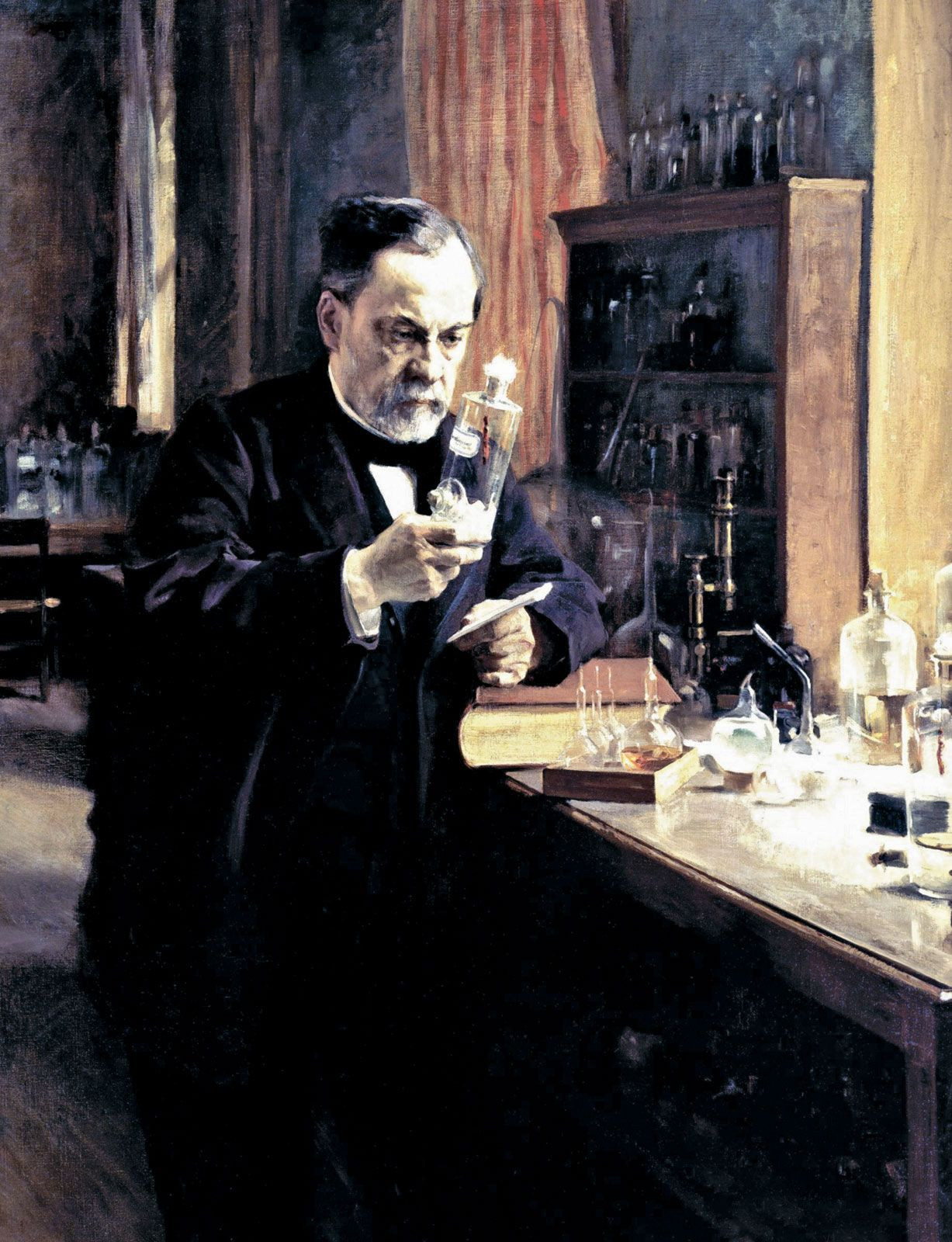Louis Pasteur, a French chemist and microbiologist, stands as a monumental figure in the history of science and medicine. His groundbreaking discoveries revolutionized our understanding of disease, fermentation, and the very nature of microorganisms. Pasteur’s relentless pursuit of knowledge not only saved industries but also paved the way for life-saving medical advancements, earning him a place among the most honored scientists in history.
 Doctor Louis Pasteur in his Lab, 1885 Painting by Albert Edelfelt
Doctor Louis Pasteur in his Lab, 1885 Painting by Albert Edelfelt
Born on December 27, 1822, in Dole, France, Louis Pasteur’s early life provided little indication of the scientific giant he would become. Growing up in a modest family – his father Jean-Joseph Pasteur was a tanner and a decorated sergeant major from the Napoleonic Wars – instilled in him a strong sense of patriotism and discipline. While not an exceptional student in his youth, Pasteur showed a talent for art, creating pastels and portraits that are still preserved today. He steadily progressed through his education, earning his Bachelor of Arts in 1840 and Bachelor of Science in 1842 from the Royal College of Besançon.
 Doctor Louis Pasteur Portrait – Renowned French Chemist and Microbiologist
Doctor Louis Pasteur Portrait – Renowned French Chemist and Microbiologist
Foundations of a Scientific Career
Pasteur’s formal education laid the groundwork for his scientific endeavors. He continued his studies in Paris, gaining his doctorate from the École Normale Supérieure. His early research focused on chemistry, specifically on molecular asymmetry. He made a significant breakthrough by demonstrating that molecules with identical chemical composition could have different structures and properties when viewed in three dimensions. This work on stereochemistry was foundational and showcased his meticulous approach to scientific inquiry.
Revolutionizing Industries and Medicine
Pasteur’s impact extended far beyond theoretical chemistry. He tackled practical problems with profound scientific insight. When the French beer, wine, and silk industries faced crises due to spoilage and disease, it was Doctor Louis Pasteur who provided the solutions. He demonstrated that fermentation was not a purely chemical process, as previously believed, but was caused by living microorganisms. This discovery led to pasteurization, a heat treatment process that eliminates harmful microbes in beverages like wine and beer, and later milk, saving these vital industries.
Furthermore, Pasteur challenged the long-held theory of spontaneous generation, proving that life does not arise spontaneously but originates from pre-existing life. This was crucial in establishing the germ theory of disease, which posits that many diseases are caused by microorganisms. Building upon this theory, Pasteur developed vaccines against chicken cholera, anthrax, and most famously, rabies. His rabies vaccine was a monumental achievement, offering hope against a previously untreatable and terrifying disease and solidifying his legacy as a medical pioneer.
Enduring Legacy and Recognition
Doctor Louis Pasteur’s contributions to science, technology, and medicine are immeasurable. His work not only advanced scientific understanding but also had direct and positive impacts on human life and industry. He received numerous accolades during his lifetime, including the Legion of Honour, France’s highest distinction, and election to the Académie des Sciences. Today, institutions worldwide, including the Pasteur Institute, continue to honor his name, reflecting the enduring impact of his scientific breakthroughs and his unwavering commitment to improving human health and well-being. Louis Pasteur’s life and work remain an inspiration to scientists and researchers globally, demonstrating the power of scientific inquiry to transform the world.
